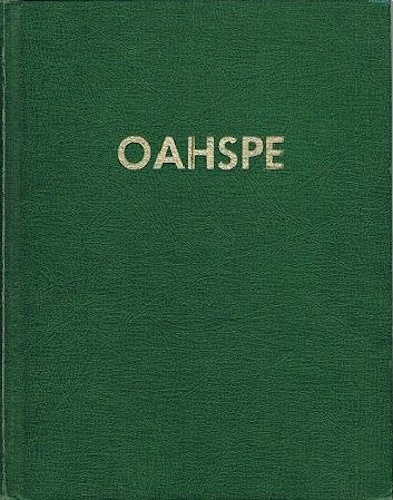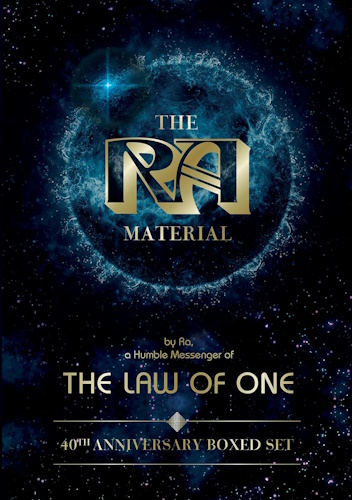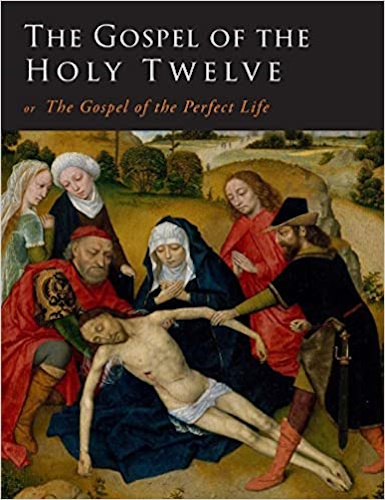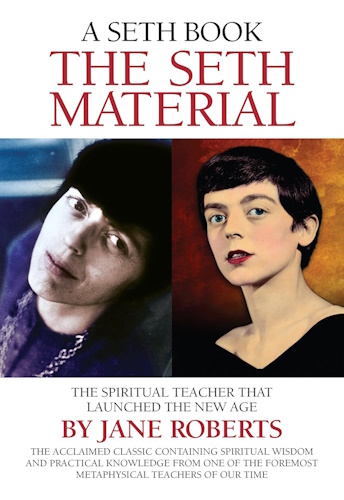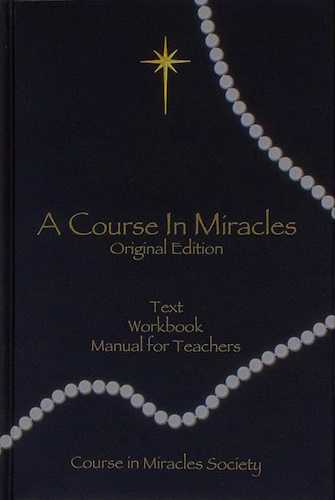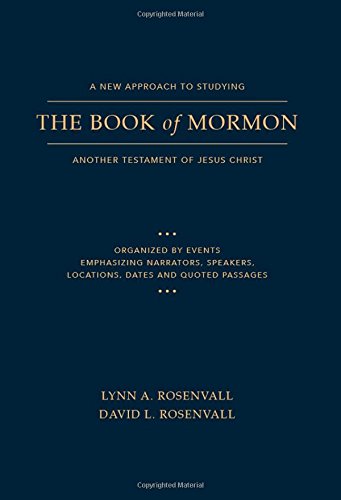
![]()
![]()
Book of the Arc of Bon
Chapter X
1. JEHOVIH said to Capilya: Thou shalt remain with My chosen until they have learned these rites and ceremonies and doctrines; after which thou shalt go to another region whither I will lead thee, and there teach the same things, and in the same way. And Capilya obeyed the commandments of the Great Spirit in all these things.
2. In the fifth year of Capilya's preaching, the voice of Jehovih came to him saying: Behold, thy foster-father is near death's door. Go thou to him and have the law of protection established before his death; and after his death, and when thou art king, thou shalt ratify the law, and then abdicate the throne.
3. So Capilya returned to Yokovrana, the king, who was ill with fever. The king said: O my son, my son! I feared I should die ere mine eyes beheld thee. A few days more, and it will be over with me. Thou wilt be king. Bethink thee, what wouldst thou ask of me, whilst yet I may accomplish it?
4. Capilya said: Call thy Royal Council and pass a law guaranteeing Brahmins,
p. 484b
the Zarathustrians (Faithists), the lands they have possessed and tilled and are now dwelling on, to be theirs forever.
5. The king assented to this, and the law was so enacted; and this was the first law granting land unto the Faithists, to be their own, by any king in all the world. And the law stipulated that the Faithists should worship in their own way; neither should they be impressed into any army as soldiers of war.
6. After the law was established, Yokovrana said unto Capilya: I was wondering why thou didst not wait till thou wert king, and then enact the law thyself, and it could not be set aside during thy life-time? I will die soon, and the law will die with me.
7. Capilya answered: I shall ratify thy law on the day I ascend the throne, which is binding, according to the rules of the ancients. Had I waited until I was king, then I had been bound, according to my religion, which is that no one individual possesseth land, save what he tilleth, and then only by donation from the community in which he dwelleth, and only during his life-time, after which it reverteth to the community.
8. Yokovrana said: Thou art wise, O my son! What is it that thou understandst not? After the king rested a while, he said: Capilya, thou hast often said thou hast seen the angels of heaven: Who sayest thou they are?
9. Capilya said: Persons who once inhabited this earth. Some of them once lived on the stars.
10. The king said: Since thou sayest so, it must be so. I thought, sometimes, they might be different beings that dwell in the air, and never dwelt here. Sayest thou, Capilya, all souls are immortal?
p. 485b
11. Capilya said: They are so born into life; nevertheless, not all inherit everlasting life. Even as the body goeth into destruction, so can the spirit of a man dissolve out of being. The fruit of them that have attained to faith in everlasting life is safe; but for them that have fallen from faith in everlasting life, and from faith in the Creator, I pity them and their heirs.
12. The king said: Why do the oracles tell lies? They are the words of angels.
13. Capilya said: If a man will not think for himself, examine for himself, the Creator suffereth him to be the recipient of lies. He is a wise man who hath attained to disbelief in angels and men; for then he will turn to the Creator, Who is All Truth. This is the beginning of wisdom. Some fair men, with stunted souls, who look not about doing good in the world, require the serpents's fang in order to make them think.
14. The king said: I have killed many men in my day; sayest thou I have sinned? Capilya said: Inquire thou of thy Creator. I am not thy judge, nor any man's. The king asked: If a man be killed and his soul live, then the killing amounteth to little. We put away the body, but the soul may come back and retaliate. Is it not so? Capilya said: Yea, O king.
15. The king reflected a while, and then he asked: My son, can the spirits of them we have slain catch us in heaven and injure us? Capilya said: Yea, O king. The king said: And they having been in heaven first would have the advantage in battle. And if they go in gangs and have a leader (satan), they might do a great hurt. Know thou, Capilya, I have a great secret for thy philosophy; which is: When death draweth near, we begin to shake in the
p. 486b
soul as to what we have done all our lives. Sometimes I think of saying to Dyaus: Here, I will pray thee! But then I remember I have no merchandise which he would accept. How strong we are in health and prosperity, and how weak in adversity and in death! Sayest thou prayers would make my case stand better in heaven?
16. Capilya said: I am not master in heaven; or if I were, my love to thee would shield thee from all darkness. The king said: The priest saith if I pay him money he can intercede with Dyaus and so secure me a high seat in heaven. I think he falsifieth, for Dyaus oweth him nothing. Two things I have found, even with my little wisdom; the caterer to the king and the caterer to the Dyaus make great pretences, but do but little as to their promises. These two men, O my son, beware of them.
17. I owe my greatness more to this discretion than to wisdom. They are at the bottom of all wars and evils in this world. They can deceive even the Gods, I am told. When thou art king, Capilya, put thy wisdom in this matter; spare them not; they are the curse of the world. I regret that I slew not more of them; my conscience pricketh me for this.
18. Capilya said: Man's conscience being only part of the man, may it not err? Is not the conscience dependent for wisdom on other things? And after all, if we have done that which seemed the highest, best thing at the time, have we not fulfilled the law?
19. The king said: It would seem so. Conscience must depend for its errors or its justice on the education it hath received. But may not conscience be a disease in the heart? To regret for not having done a thing; to regret for having done a thing, these are irreparable complainings. Whoever can say beforehand, and yet not err, is wise indeed. I find that no man brought himself into the world; nor can he live but for a short period at most. When we are young we dislike to die; but at my great age I desire not to live. Evidently He Who created us hath more mastery over us than we have over ourselves.
20. Capilya said: That is true; man at the best hath not more than half mastery of himself. Yokovrana interrupted,
p. 487b
saying: I interrupt thee, my son, because my time is short. I would ask thee what is the greatest consolation to a dying man?
21. Capilya said: There are two consolations that are great to a dying man: one is to know that he left no heirs after him; and the other is, that he leaveth after him a noble son. The king said: Thou art wise, my son. I asked the priest in the oracle-house the same thing, and he said: For a dying man to have faith that his soul will enter paradise. Thereupon I said to him: No honest man can have such faith; for such a fate would be cheating heaven with one's sins. Were I the Creator, I would break the necks of half the world. Still it may please a foolish dying man to tell him such a tale as regardeth his soul. Thou alone, my son, hath told me the greatest consolation to a dying man.
22. My slaves may have faith that they will be kings, but they will wake up in their folly. A man may have faith that his soul will enter paradise, and he may wake up and find it was a mistake. Faith without a guarantee is folly.
23. Capilya said: A man to know a thing of his own knowledge hath the greatest of all wisdom. To be as thou art, a philosopher in time of death, is evidence of a great soul. Few have attained to this.
24. The king said: Before thee I am nothing as to wisdom. Thou art a mystery to me. Thy mother, whom the doctors slew to put her out of her misery from long sickness, was not wise. And as to myself, I am only great, not wise. I can make men fear me; but thou knowest the secret of love, which is a great thing. Thy name, O Capilya, will be honored long after mine is forgotten. Yet I am the greatest king in all the world. O thou, my most wonderful son!
25. Capilya said: Because thou gavest me great learning and a father's kingly care, why should I not be an honor to thee, O king? When thou art in heaven, and can look upon me, I hope thou mayest not lose thy hope for me.
26. The king said: It seemeth not wise to me that angels should see too closely their mortal kin, or else, forsooth, they would never raise up to higher heavens. The seers say heaven and angels are about us all the while.
p. 488b
I think this is a lie, otherwise it would be more hell than heaven to them.
27. After the king rested a while he said: I have been surmising what to say to thee, for I feel the blood in my veins is nearly stopped. And this maketh me think more than ever that man at best is but a gaming ball for the Gods to play with. Who knoweth, perhaps even now they laugh in their sleeves as to how they have used me for some hellish game! O that man had some standpoint to judge things by! O that he had a measure and a foundation to stand upon! I have searched the spirits of the dead, and the Gods of the oracles, and they are lies, lies, lies!
28. Capilya said: The small spark of light within our souls is right at the start; and if it be rightly cultivated it will grow brighter and clearer every day. For is it not in the nature of all things to grow by culture?
29. The king said: To rightly cultivate! There is the matter, O my son. To settle that point the world hath been washed all over with man's blood. Rightly! Who knoweth that word? O that mine enemies were mistaken, and that I was clear in perceiving what was right!
30. Again he rested awhile and then he said: I had hoped when death came on, I should get glimpses of what is in store for me; but even death is silent and dark and deceiving. My members weaken evenly. This showeth I was begotten of good blood. Hadst thou not been my son I should rejoice more than I do. For then I should know that my family race had run out, and, so, I should have ascended to the higher heavens. Now I may be obliged to dwell on the earth for a long season. As I understand myself now, with all thy wisdom and thy love, I had rather thou hadst been some other man's son. Then I could die easier and not care so much about leaving thee. I have no other kin.
31. Capilya said: O king! Thou has rent my heart in twain! Of a truth I am not thy son! When thy wife laid in the dark chamber, the angels of heaven stole me and brought me thither. She who nursed me was my mother; and her husband was my father. I am a Brahmin of Zarathustrian blood, a Faithist!
p. 489b
32. The king said: Is this true? It can not be! Go call thy nurse! Capilya called in the nurse, and the king said to her: Ere I doom thee to death, I charge thee, is this thy son, and is thy husband his father? She answered him: I am sworn to Jehovih and cannot answer thee. Therefore sentence me, for I have carried a great load many a year. Behold! An angel of heaven appeareth!
33. Jehovih's angel appeared before the king, and all saw the angel, which said: Capilya is not thy son, O king! And yet no sin hath been committed! Thereupon the angel vanished.
34. The king said: Were this not a counterfeit made by the Gods, then it was my angel wife. So, Capilya! Must here end our love? The earth is going fast from me now! Capilya said: Our love will never die! For the good thou has done for the Zarathustrians, the Great Spirit will provide thee a home suited to thy great soul. If thou hadst any faults, thou hast more than balanced them.
35. The king beckoned for Capilya and the nurse to come to him, and then he said, feebly: It seems to me I hear the Gods laughing! Keep ye up the joke! My brother's oldest son knoweth nothing of it! A kingdom is but a farce. Hold me up, Capilya. I would have mine eyes feast on the sky only, after having seen thy sweet face.
36. Capilya lifted him up, and the king said to the nurse: I bless thee! Thou broughtest forth a good prop! O aden (sky), aden! All is something! All is nothing!
37. And the breath went out of him; he was dead.
-
Urantia Book, 44:0.11 - The Celestial Artisans
Never in your long ascendancy will you lose the power to recognize your associates of former existences. Always, as you ascend inward in the scale of life, will you retain the ability to recognize and fraternize with the fellow beings of your previous and lower levels of experience. Each new translation or resurrection will add one more group of spirit beings to your vision range without in the least depriving you of the ability to recognize your friends and fellows of former estates.
-
Princess Bride 1987 Wallace Shawn (Vizzini) and Mandy Patinkin (Inigo Montoya)
Vizzini: HE DIDN'T FALL? INCONCEIVABLE.
Inigo Montoya: You keep using that word. I do not think it means what you think it means. -
Urantia Book, 117:4.14 - The Finite God
And here is mystery: The more closely man approaches God through love, the greater the reality -- actuality -- of that man. The more man withdraws from God, the more nearly he approaches nonreality -- cessation of existence. When man consecrates his will to the doing of the Father's will, when man gives God all that he has, then does God make that man more than he is.
-
Urantia Book, 167:7.4 - The Talk About Angels
"And do you not remember that I said to you once before that, if you had your spiritual eyes anointed, you would then see the heavens opened and behold the angels of God ascending and descending? It is by the ministry of the angels that one world may be kept in touch with other worlds, for have I not repeatedly told you that I have other sheep not of this fold?"
-
Urantia Book, Foreword - 0:12.12 - The Trinities
But we know that there dwells within the human mind a fragment of God, and that there sojourns with the human soul the Spirit of Truth; and we further know that these spirit forces conspire to enable material man to grasp the reality of spiritual values and to comprehend the philosophy of universe meanings. But even more certainly we know that these spirits of the Divine Presence are able to assist man in the spiritual appropriation of all truth contributory to the enhancement of the ever-progressing reality of personal religious experience—God-consciousness.
-
Urantia Book, 1:4.3 - The Mystery Of God
When you are through down here, when your course has been run in temporary form on earth, when your trial trip in the flesh is finished, when the dust that composes the mortal tabernacle "returns to the earth whence it came"; then, it is revealed, the indwelling "Spirit shall return to God who gave it." There sojourns within each moral being of this planet a fragment of God, a part and parcel of divinity. It is not yet yours by right of possession, but it is designedly intended to be one with you if you survive the mortal existence.
-
Urantia Book, 1:4.1 - The Mystery Of God
And the greatest of all the unfathomable mysteries of God is the phenomenon of the divine indwelling of mortal minds. The manner in which the Universal Father sojourns with the creatures of time is the most profound of all universe mysteries; the divine presence in the mind of man is the mystery of mysteries.
-
Urantia Book, 1:4.6 - The Mystery Of God
To every spirit being and to every mortal creature in every sphere and on every world of the universe of universes, the Universal Father reveals all of his gracious and divine self that can be discerned or comprehended by such spirit beings and by such mortal creatures. God is no respecter of persons, either spiritual or material. The divine presence which any child of the universe enjoys at any given moment is limited only by the capacity of such a creature to receive and to discern the spirit actualities of the supermaterial world.
-
Urantia Book, 11:0.1 - The Eternal Isle Of Paradise
Paradise is the eternal center of the universe of universes and the abiding place of the Universal Father, the Eternal Son, the Infinite Spirit, and their divine co-ordinates and associates. This central Isle is the most gigantic organized body of cosmic reality in all the master universe. Paradise is a material sphere as well as a spiritual abode. All of the intelligent creation of the Universal Father is domiciled on material abodes; hence must the absolute controlling center also be material, literal. And again it should be reiterated that spirit things and spiritual beings are real.
-
Urantia Book, 50:6.4 - Planetary Culture
Culture presupposes quality of mind; culture cannot be enhanced unless mind is elevated. Superior intellect will seek a noble culture and find some way to attain such a goal. Inferior minds will spurn the highest culture even when presented to them ready-made.
-
Urantia Book, 54:1.6 - True And False Liberty
True liberty is the associate of genuine self-respect; false liberty is the consort of self-admiration. True liberty is the fruit of self-control; false liberty, the assumption of self-assertion. Self-control leads to altruistic service; self-admiration tends towards the exploitation of others for the selfish aggrandizement of such a mistaken individual as is willing to sacrifice righteous attainment for the sake of possessing unjust power over his fellow beings.
-
Urantia Book, 54:1.9 - True And False Liberty
How dare the self-willed creature encroach upon the rights of his fellows in the name of personal liberty when the Supreme Rulers of the universe stand back in merciful respect for these prerogatives of will and potentials of personality! No being, in the exercise of his supposed personal liberty, has a right to deprive any other being of those privileges of existence conferred by the Creators and duly respected by all their loyal associates, subordinates, and subjects.
-
Urantia Book, 54:1.8 - True And False Liberty
There is no error greater than that species of self-deception which leads intelligent beings to crave the exercise of power over other beings for the purpose of depriving these persons of their natural liberties. The golden rule of human fairness cries out against all such fraud, unfairness, selfishness, and unrighteousness.
